US warns citizens against travel to China as coronavirus toll tops 200
The United States warned Americans not to travel to China as the death toll from a new virus reached 213 on Friday and the World Health Organization (WHO) declared a global health emergency.
In a new travel advisory, the State Department raised its warning for China to the same level as Afghanistan and Iraq, saying on its website, “Do not travel to China due to novel coronavirus first identified in Wuhan.”
Japanese Prime Minister Shinzo Abe told parliament the government had decided to raise its infectious disease advisory level for China, urging citizens to avoid non-urgent trips.
Japan’s advisory for China’s central province of Hubei, where the virus first emerged, is one level higher, advising citizens not to travel there.
Beijing has not commented on the U.S. travel warning, but in response to the WHO declaration, a foreign ministry spokeswoman said China had taken “the most comprehensive and rigorous prevention and control measures”.
“We have full confidence and capability to win this fight against the epidemic,” spokeswoman Hua Chunying said in a statement.
WHO Director-General Tedros Adhanom Ghebreyesus said the body “doesn’t recommend - and actually opposes” curbs on travel or trade with China.
The death toll in Hubei stood at 204, with 9,692 infections nationwide by Thursday, China’s health authorities said. As many as 129 cases have been reported in 22 other countries and regions, but no deaths outside China.
International alarm over the new coronavirus that surfaced in December in Hubei’s capital of Wuhan is driven by its rapid spread and the fact that doctors cannot yet tell how deadly or contagious it is.
All air traffic between Italy and China will stop, Italian Prime Minister Giuseppe Conte said, taking a more drastic step than most countries, after Italy announced its first confirmed cases in two Chinese tourists.
More airlines have stopped flying to mainland China, including Air France KLM SA, British Airways, Germany’s Lufthansa and Virgin Atlantic, while others have cut flights.
Japan’s ANA Holdings said it may consider suspending China flights, Jiji news agency said on Friday, with the airline having said bookings for February flights leaving China had fallen by half.
It is possible the White House could opt for further action and bar flights to China, but a U.S. official stressed that no decision had been made. The White House had considered that drastic step this week, but opted against it.
Foreign governments evacuated citizens from Hubei to hold them in quarantine.
A plane with British citizens aboard left from Wuhan just before 0200 GMT on Friday, Britain’s embassy in China said.
Japan, with 14 confirmed cases, said it would bring forward its date to designate the coronavirus an “infectious disease”, as a third charter flight arrived, ferrying citizens home.
Such a designation, expected to take effect on Saturday, will permit compulsory hospitalization and use of public funds for treatment, among other measures.
The first of four planned flights taking South Koreans home landed on Friday, as tension simmered over the location of quarantine centers that nearby residents called too close for comfort.
The two Koreas opened a new hotline between Seoul and Pyongyang after agreeing to temporarily close a joint liaison office in a Northern border city until virus concerns ease, the South said.
Economic impact
Stock markets steadied slightly on Friday after the WHO praised China’s efforts to contain the virus, following a tumble the previous day over the rising toll in the world’s second-biggest economy.
“The fear of contagion risk is already evident in global financial markets,” Moody’s Investors Service said on Thursday.
China’s statistics show that just over 2% of infected people have died, suggesting the virus may be less deadly than the coronaviruses responsible for the 2002-2003 outbreak of the Severe Acute Respiratory Syndrome (SARS), and an episode of Middle East Respiratory Syndrome (MERS).
But economists fear its impact could be bigger than SARS, which killed about 800 people and cost the global economy an estimated $33 billion, as China’s share of the world economy is now far greater.
The virus impact could “reverberate globally”, hitting supply chains, Moody’s said, adding, “Global companies operating in the affected area may face output losses as a result of the evacuation of workers.”
In China, thousands of factory workers may struggle next week to get back to work from Lunar New Year holidays, as they face travel curbs. Major firms such as Alphabet Inc’s Google and Sweden’s IKEA have closed operations there.
Four Chinese provinces, including Shandong and Heilongjiang in the industrial rust-belt region, have asked companies not to start work before Feb. 10.
The virus is believed to have originated in a food market illegally selling wildlife in Wuhan. About 60 million people in surrounding Hubei are living under virtual lockdown.
By the end of Thursday, Hubei’s tally of cases approached 6,000, with 1,220 new cases detected, its health authorities said.
China will release winter and spring vegetable reserves in major northern cities to ease supply shortages, state news agency Xinhua said.
At least one doctor at a Wuhan hospital was beaten on Wednesday by the family of a patient declared dead of a coronavirus infection, online media firm Caixin said.
New cases are being reported every day around the world, spurring cuts to travel, outbreaks of anti-China sentiment in some places and a surge in demand for protective face masks.
Medical experts say the rising number of human-to-human transmissions outside China suggests the virus could spread.
(Source: Reuters)
Hamas hails Gaza’s victory over Israel in genocidal war, its forcing enemy to agree to ceasefire
'Capitulation': Israeli officials and media concede Gaza defeat as truce unfolds
'Gaza has won': Social media users react to ceasefire with mix of relief, joy
Iran seeks South Korea’s assistance for AI, fiber-optic projects
VIDEO | Iran's 'Eqtedar' (Power) maneuver
Israel hits HTS military target in Syria for 1st time since fall of Assad
VIDEO | Press TV's news headlines
Israel has slaughtered 13,000 students in Gaza, West Bank


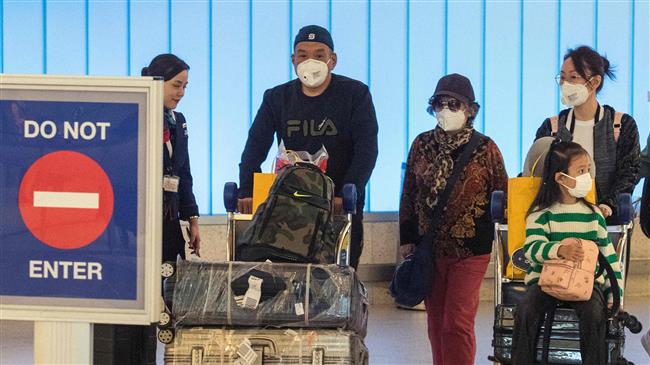






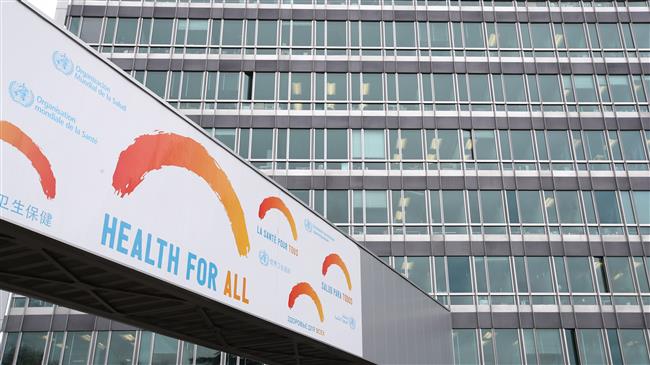
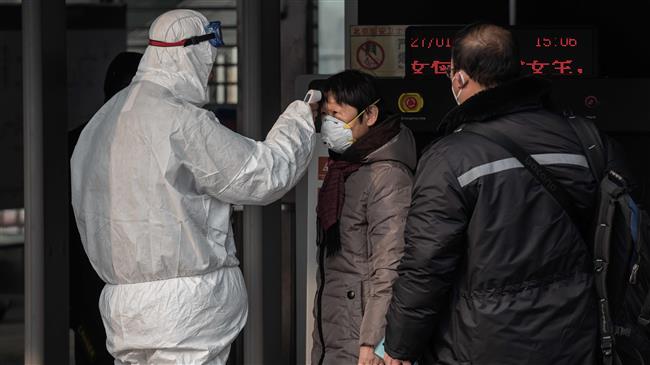
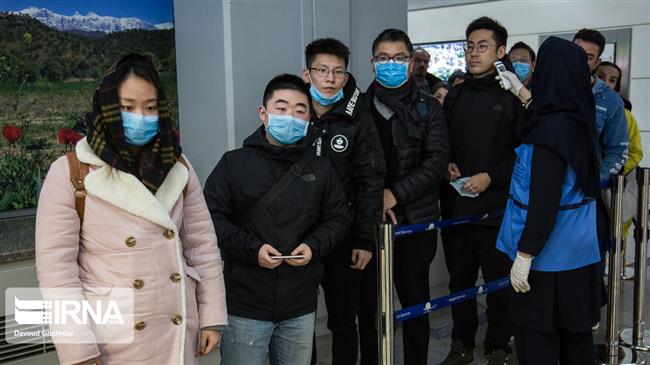
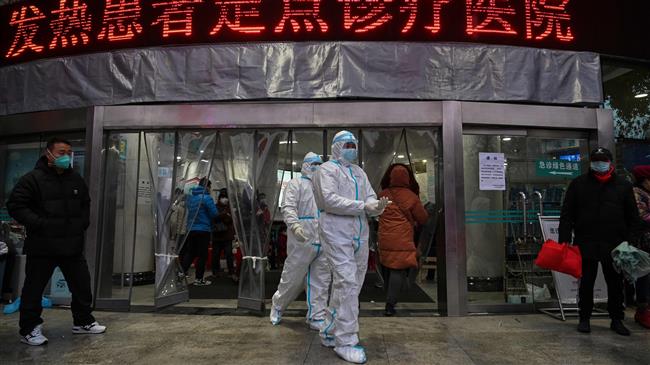
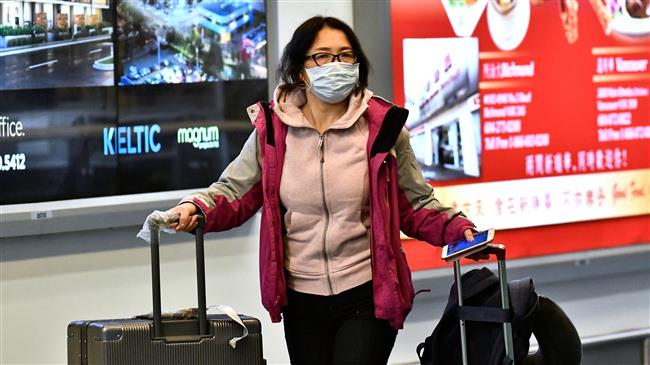
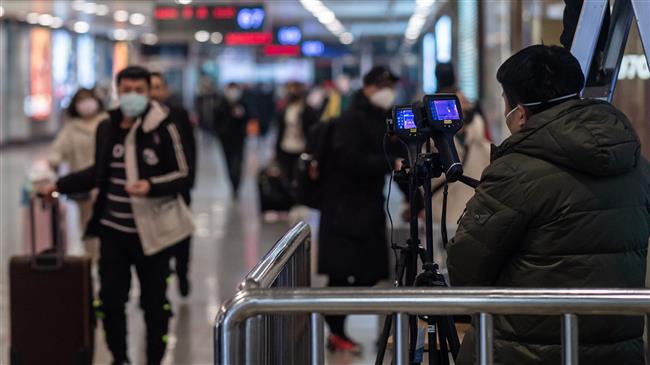
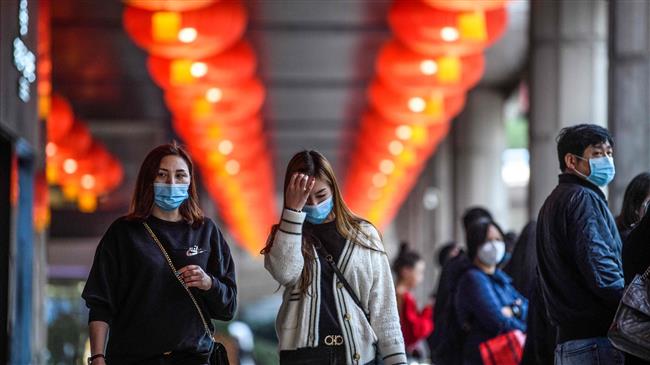
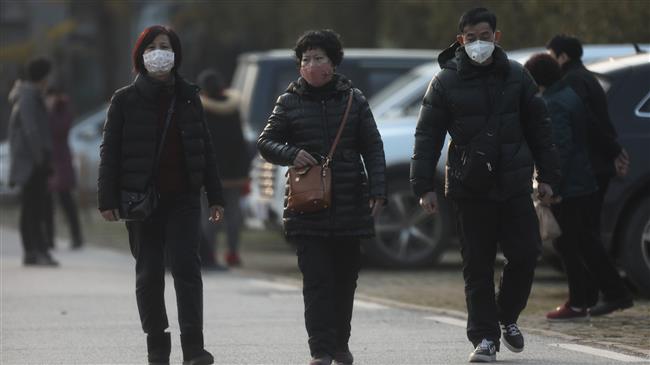

 This makes it easy to access the Press TV website
This makes it easy to access the Press TV website